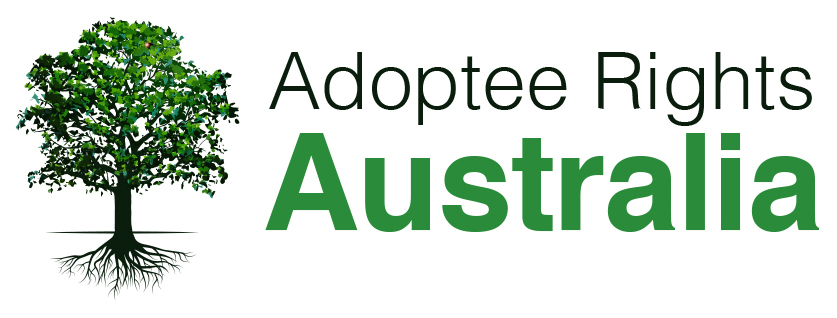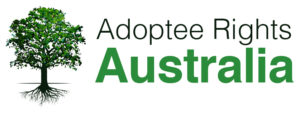President of Adoptee Rights Australia (ARA) Inc., Peter Capomolla Moore, says: “ARA welcomes many of the 56 recommendations of the Victorian Inquiry into responses to historical forced adoption in Victoria and we thank the Committee and Secretariat for the empathetic and inclusive way this Inquiry was conducted.”
“We congratulate the mothers who have fought long and hard for recognition of their trauma and the illegal acts they were subjected to when their children (now adults) were forcibly removed.”
“We are pleased to see that the words of the late William Hammersley-Ellis, co-founder of Adoptee Rights Australia, whose last wish was to be able to die as the person he was when he was born, can be heard loud and clear in the recommendation to introduce No-fee, No-fault discharges (Recommendation 16).”
“But we are gravely concerned that adopted people have been left out of the redress scheme recommendations.”
“While Recommendation 18 wholeheartedly endorses a redress scheme for mothers ‘without delay’ (made up of a monetary payment, counselling, and psychological support) that specifically does not differentiate between mothers, Recommendation 22 for adoptees is that the government ‘consider establishing a redress scheme for people who were forcibly adopted, especially those who were placed in institutions or adopted into unsuitable families.’ ”
“This amounts to an invalidation of one group of forcibly removed adoptees, which contributes to further damage in an already extremely vulnerable community.”
“The fact that such high numbers of adoptees were physically and sexually abused in adoptive placements absolutely needs to be recognised. But the lack of recognition of the suffering of all who were forcibly removed and adopted is at odds with the content of the report.”
“Throughout the report there is recognition of the grief, trauma, and loss of the adopted person – not just from the further abuse experienced by many, but from the maternal separation and adoption itself.”
“And if redress is to be made for mothers for having their babies forcibly removed, then how can it not be made inclusively for those babies (now adults) who illegally lost their mothers, fathers, grandparents, cousins, aunts, uncles, sisters and brothers and their rights to their family histories & cultures along with vital medical histories?”
“Recommendation 22 is also at odds with the motion passed in the Federal Senate on the 18th March 2021 to mark the 8th anniversary of the National Apology for Forced Adoptions, which included the commitment to hear the voices of those who were forcibly removed, and to ensure that all of those affected get the help they need.”
“We appreciate that the Committee listened to ARA’s calls for an inquiry into the practice of adoption itself. But that is a separate matter to redress for acknowledged past illegal acts of removal.”
“We are an aging population in need of the support and recognition that comes with redress before it is too late.”
Contact information:
For further information, contact Adoptee Rights Australia (ARA) Inc at [email protected]


4 Replies to “VICTORIAN INQUIRY – MANY RECOMMENDATIONS LONG OVERDUE – MORE NEEDED FOR ADOPTEES”
And why, as always, are fathers largely ignored? It is not only mothers who suffered when their children were lost to adoption.
The full report is here https://www.parliament.vic.gov.au/images/stories/committees/lsic-LA/Inquiry_into_Responses_to_Historical_Forced_Adoptions_in_Victoria_/LALSIC_59-03_Responses_to_historical_forced_adoption_in_Vic.pdf
because nany father’s were either rapists..priests… incestuous…cowards or thise who used young girls for sexual exploitation as disclosed in AIFS report from survey conducted amongst father’s and nany admitted their parents did not want thrm to confirm paternity
This is a really good question! and the answer is quite complex. Yes, there are fathers who experienced loss, grief and trauma at the loss of their newborn child. They are the rare young men who wanted to marry their girlfriends and start a life together. They were denied this right by their own family, their girlfriends parents often under the threat of violence or for having sex via ‘carnel knowledge’. They were rendered as powerless as their girlfriends. Many of these couples would remain together, marry and have children. I think it would be acceptable to most that these fathers should be able to access redress mechanisms.
However, on the flipside of these stories, we have the men who contributed to forced adoption through their unwillingness to step up and be a father, refused to parent another man’s child, who were silent bystanders or skipped town to avoid their responsibilties. Much of the policies and practices of forced adoption enabled the protection of men from being held accountable as parents. It must also be acknowledged that some were abusive fathers/relatives and men who knew they could forced themselves sexually onto young girls and women without consent all the while knowing they remained free from facing any consequences. These individuals have floated through life never owning their critial contribution to Australia’s history of forced adoption.
Comments are closed.